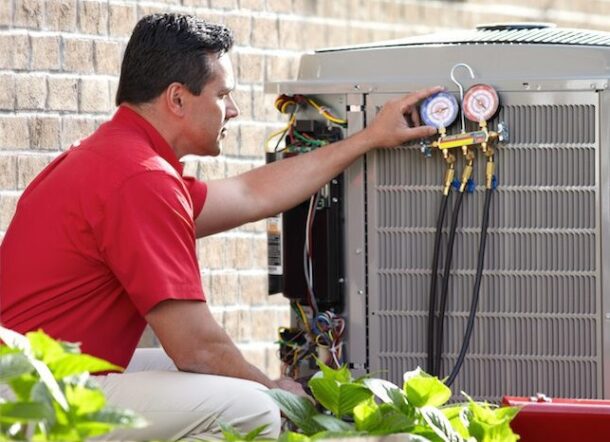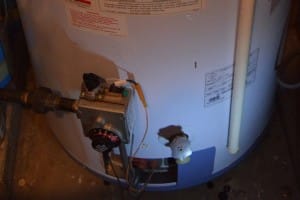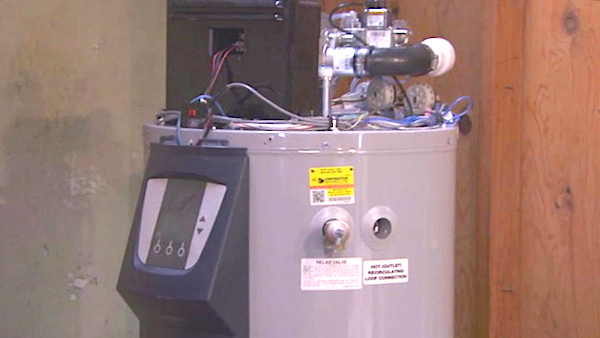Through preventative AC maintenance, you may be able to prevent thousands of dollars in repair costs. For instance, a new compressor or evaporator coils can easily cost more than $1,000 to repair. By taking care of your AC, you can prevent emergency repairs from happening. When your AC breaks down, it’s never at a convenient Read more
Maintenance Tips

Through preventative AC maintenance, you may be able to prevent thousands of dollars in repair costs. For instance, a new compressor or evaporator coils can easily cost more than $1,000 to repair. By taking care of your AC, you can prevent emergency repairs from happening.
When your AC breaks down, it’s never at a convenient time. Air conditioners break when they’re being used the most, which means your emergency repairs will most likely occur during peak usage times. Worse still, everyone else will also need emergency repairs at the same time.
If your AC does need repairs, it’s important to turn to a reliable company to help. With the assistance of an experienced heating, ventilation, and air conditioning (HVAC) technician, you can get the problem diagnosed and repaired right away.

Why Preventative Maintenance is Essential for Your AC System
By getting preventative maintenance, you can enjoy a number of important benefits.
- Prevent Costly Repairs: The best AC maintenance tips can help you prevent costly repairs from happening because a well-maintained AC is less likely to break down.
- Improve Energy Efficiency: Many maintenance issues, like dirty filters, force your AC to work harder. By changing your filter and maintaining your AC, you can spend less money on your energy bills.
- Boost AC Lifespan: If your AC is maintained and needs fewer repairs, it will likely last longer. A typical air conditioner can last 15 to 20 years if it is properly cared for.
- Avoid System Failures: The last thing you want during a heat wave is a surprise system failure. By taking care of your AC, you’re reducing emergency AC repairs and system failures.
- Increase Performance: Additionally, better maintenance helps your system achieve its maximum performance during critical times.
Key Maintenance Tips to Prevent Emergency AC Repairs
To minimize the likelihood of emergency AC repairs, use the following AC maintenance tips. For more complicated maintenance tasks, reach out to an HVAC professional for expert assistance.
- Regularly Replace Air Filters: The AC filter is supposed to be cleaned or replaced every 30 to 90 days. If this doesn’t happen, it can cause extra strain on your system and reduce the AC’s efficiency.
- Inspect and Clean Condenser Coils: Condenser coils must be free from dirt and debris. You can wash off the dirt with a hose or get an HVAC technician to help you.
- Check Refrigerant Levels: If the refrigerant is low, it can cause overheating and system failure. Low refrigerant is often due to leaks, which must be repaired by an HVAC professional. In addition, anyone who recharges refrigerant must have a special certification.
- Ensure Proper Thermostat Function: When your thermostat isn’t working, it can cause the rest of your AC to work harder than necessary. If the sensor is broken, the AC may also have issues kicking on when it needs to.
- Inspect Ductwork for Leaks: If there are gaps in your ductwork, cold air can escape. This means your system will have to work harder and use more energy to cool your home. Additionally, it can cause uneven cooling. Fortunately, a professional technician can quickly find and repair leaks if this is the problem.
Seasonal Maintenance Checklist for Optimal Performance
Air conditioning upkeep isn’t just for the summertime. There are preventative AC maintenance tasks you can do during each season to keep your HVAC system working its best.
- Spring: During the springtime, it’s important to schedule a professional inspection and tune-up. You want your system to be ready before summer arrives. Other than scheduling an inspection, you should also clean the coils and replace the filters.
- Summer: When summer arrives, it is important to pay attention to unusual noises or cooling issues. These may indicate a repair requirement or a strain on your system.
- Fall: Once fall sets in, it is time to clean around your outdoor unit. Then, cover it up to prevent debris from getting inside during the off-season.
- Winter: When your AC isn’t in use, it’s important to turn it off properly. You should make sure it is protected from winter weather.

The Role of Professional HVAC Services in Preventative Maintenance
A professional HVAC company, like Rogue Valley Heating & Air, can help you diagnose and repair problems. By scheduling a professional inspection, you can catch potential issues before they spiral out of control. Partnering with a professional for your comprehensive maintenance can help you save money in the long run and keep your system functioning smoothly.
When to Seek Help from an Emergency AC Repair Service
With proper HVAC maintenance, you can prevent unexpected breakdowns. However, even the best preventative care can’t stop every emergency issue from happening. Through the best emergency AC repair service, you can get help for important problems, like frequent cycling, a lack of cool air, and strange noises.
Preventative Maintenance Can Prevent Costly Repairs
Getting preventative AC maintenance on a regular basis can help by reducing emergency AC repairs, boosting your energy efficiency, and avoiding unexpected breakdowns. Other than using the best HVAC maintenance tips, you can also protect your system by scheduling regular inspections with a company like Rogue Valley Heating & Air.
When an issue occurs, it needs to be dealt with before it becomes a larger problem. With the help of a trusted emergency AC repair service, you can quickly address the problem and find a solution.

Water heater maintenance ensures hot water keeps flowing and helps you avoid cold showers. If neglected, your water heater could break down. It has safety devices that need annual testing to ensure its safety. Water heaters have pressure and temperature valves for discharging water to protect them against excessive temperatures and pressures. The valves should Read more
Water heater maintenance ensures hot water keeps flowing and helps you avoid cold showers. If neglected, your water heater could break down. It has safety devices that need annual testing to ensure its safety. Water heaters have pressure and temperature valves for discharging water to protect them against excessive temperatures and pressures. The valves should be checked during annual inspections for safety purposes.
Sediment buildup significantly contributes to your water heating system’s inefficiency by settling at your water heater’s bottom, making it hard to generate hot water and lessening the water available for heating. However, regular maintenance ensures your system’s efficiency. Here are five water heater maintenance tips to consider.

1. Schedule an annual water heater inspection
Skimping on water heater maintenance isn’t good because it could render your water heating system inefficient. An annual professional water heater inspection by Williams Comfort Air or other installation and repair experts near you can help prevent significant problems.
This is because the inspection exercise allows you to identify issues before they get out of hand and get them addressed or repaired immediately, ensuring your water heater functions at its peak and reducing water heating costs. If you have a gas heater, the professional inspector ensures it’s adequately ventilated to prevent the risk of carbon monoxide poisoning.
2. Drain the hot water tank
Draining a hot water tank is an excellent way to extend your water heater’s life. This eliminates sediment buildup to ensure your water heater performs more efficiently, reducing water heating costs. If the tank is neglected, the water heater may not last as long, and the heating bills may increase due to slow water heating.
Since sediment and buildup settle at the bottom of the tank, it isn’t necessary to drain the whole water tank each time. You can flush until most of the dirt is flushed out, ensuring a speedy refill process and preventing you from accidentally turning the heater on without water which could damage it.
3. Reduce your water heater temperature
The hotter the water is in your heater, the more the elements inside of it will contract and expand, weakening them and causing them to erode or corrode. This may also increase the possibility of them wearing out quicker. Reducing your water heater’s temperatures ensures that the materials inside won’t expand or contract as much, extending its life and reducing utility bills. It also makes your plumbing last longer.
4. Insulate the water heater tank
Insulating electric water heaters is a cost-effective way of improving energy efficiency and saving you money monthly. Water heater insulation may reduce standby heat losses by 25% to 40% while saving you around 7% to 16% of water heating expenses. An insulation blanket can help reduce heat loss in your gas water heater. However, you should familiarize yourself with the local utility company and code regulations because some may restrict insulation blankets.
5. Replace the water heater filter
When hard water goes into your heater and starts heating up, the scaling minerals usually come out, creating a rock in the heater. This reduces the water heater’s efficiency until it eventually dies. A water heater filter keeps the hard water minerals from coming out. Replacing it regularly ensures your heater functions effectively.
Endnote
Caring for your water heater increases its longevity, enhances its effectiveness, and reduces water heating costs. Consider using these water heater maintenance tips to leverage these benefits.
